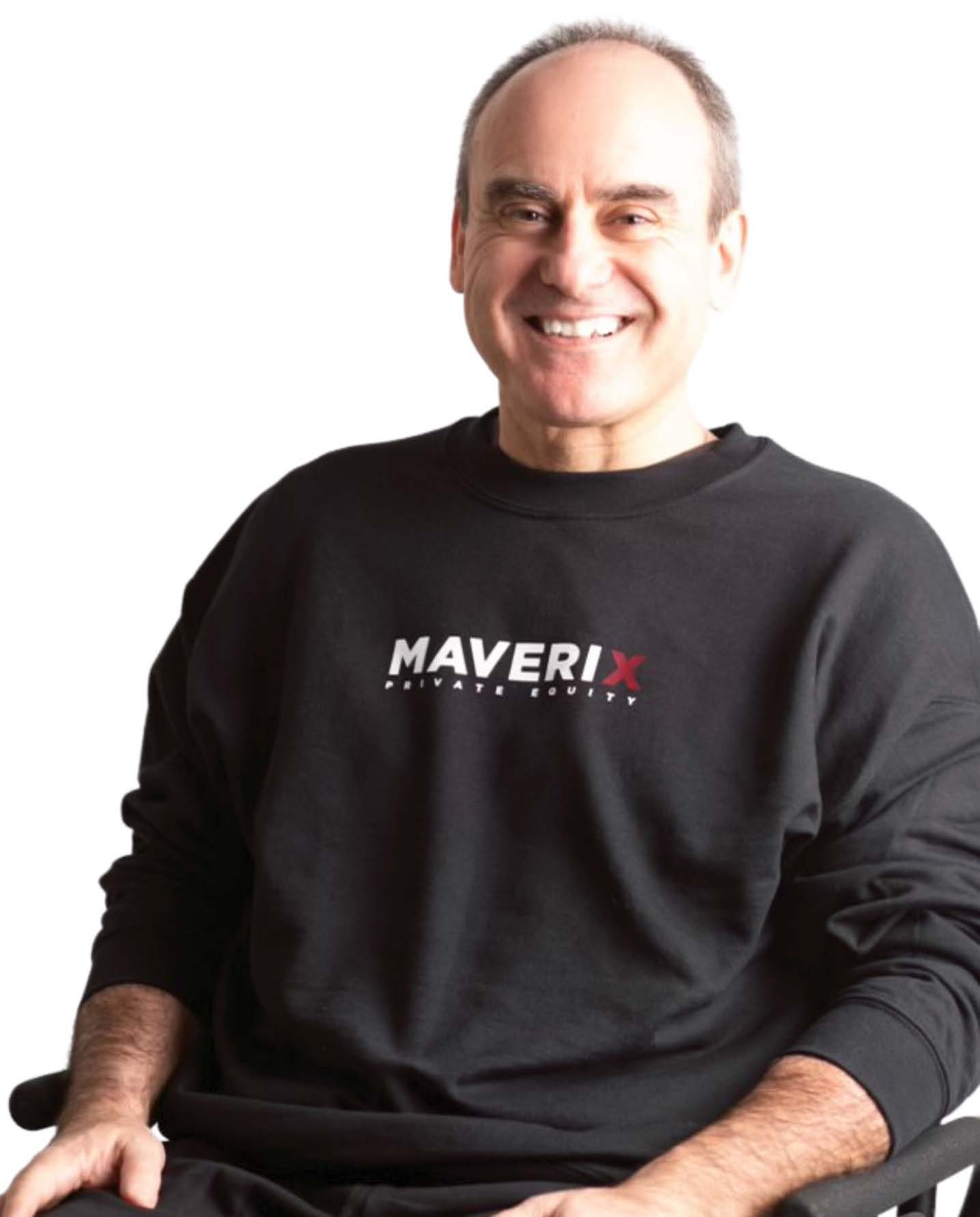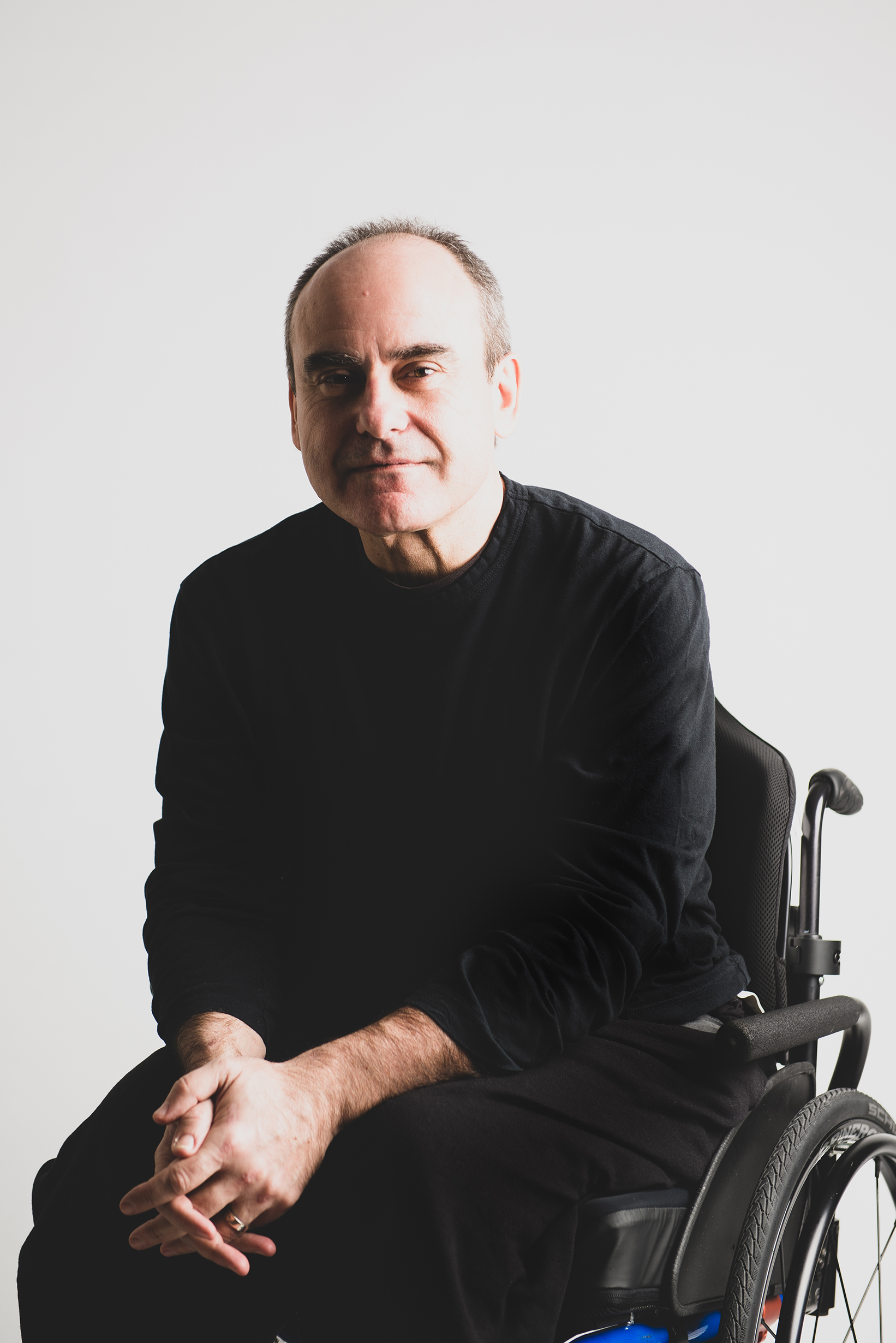WRITTEN BY GIOVANNA BONOMO-BLESCIA
David Suzuki once asked me which animal I most identified with; I said the cockroach. Why? Because what happens when you get hit and run over by a tractor-trailer? No one would survive it. But I did.
— JOHN RUFFOLO
FOUNDER AND MANAGING PARTNER OF MAVERIX PRIVATE EQUITY
Ruffolo, formerly CEO of OMERS Ventures (the venture capital arm of the large Ontario pension fund with total assets of 105 billion CAD as of 2020), is today one of the most influential—and forthright—investors and entrepreneurs in Canada. But he wasn’t bred for success—no silver spoons before him. Born in Toronto and raised in the Jane and Sheppard area, proud son of two hard-working Italian immigrant parents, Ruffolo got his first break working at the Bank of Montreal. By the time the prodigy turned seventeen, Ruffolo had become the youngest branch manager in BMO history.
During the summer, while undergoing a degree in business at York University and still working at the bank, Ruffolo tried his hand at finance and applied for a summer student job at Arthur Andersen LLP—the American holding company based in Chicago (formerly one of the Big Five accounting firms). There, the Italian Canadian wunderkind discovered he had a passion for finance. “Even though I was a manager at BMO, they told me it would take twenty years to progress, whereas the accounting firm said I’d be a partner within ten—that’s how I joined Arthur Andersen—a critical part in my evolution,” Ruffolo said.

A NEW WORLD
It doesn’t take leaving a country to transition into a new state of consciousness. All it takes is a new experience, even if it’s in the same city. Bay Street and Jane and Sheppard represented two very different worlds for the curious banker.
I remember meeting folks who said they went to Upper Canada College, thinking it was a university I never heard of until realizing it was a private high school. And it was also in that first week, and it was not done in a mean way, but it shocked me when a guy called me a dago. I thought I knew what racism meant for others until this Italian slur got dropped on me. That was the defining moment.
Though not of noble birth or educated in the finest private schools, Ruffolo’s self-doubt waxed and waned, but he refused to let it get the best of him. “I overcompensated by wanting to work doubly as hard and better than anyone else.” Ruffolo’s hard work inevitably paid off ten years later when he became a global partner of the firm. However, before he had a chance to celebrate his hard-earned promotion, Enron, one of Arthur Andersen’s largest clients, collapsed following a massive accounting fraud scheme. Though Ruffolo wasn’t involved with the account, his position as a global partner made him potentially liable if Enron took Arthur Andersen down with it. “It was a disaster,” Ruffolo recalls as he gazes upward, reliving the moment in his mind.
RESILIENCE IS PART OF MENTAL
toughness
For Ruffolo, resilience is part of mental toughness and determines how he handles setbacks and still achieves what he sets out to do. Ruffolo recalls sitting in the boardroom, watching the seemingly indestructible Titanic of a firm go down. Every certainty built over a decade peeling away, and while his colleagues were scrambling to save themselves from the now sinking ship, Ruffolo saw an opportunity.
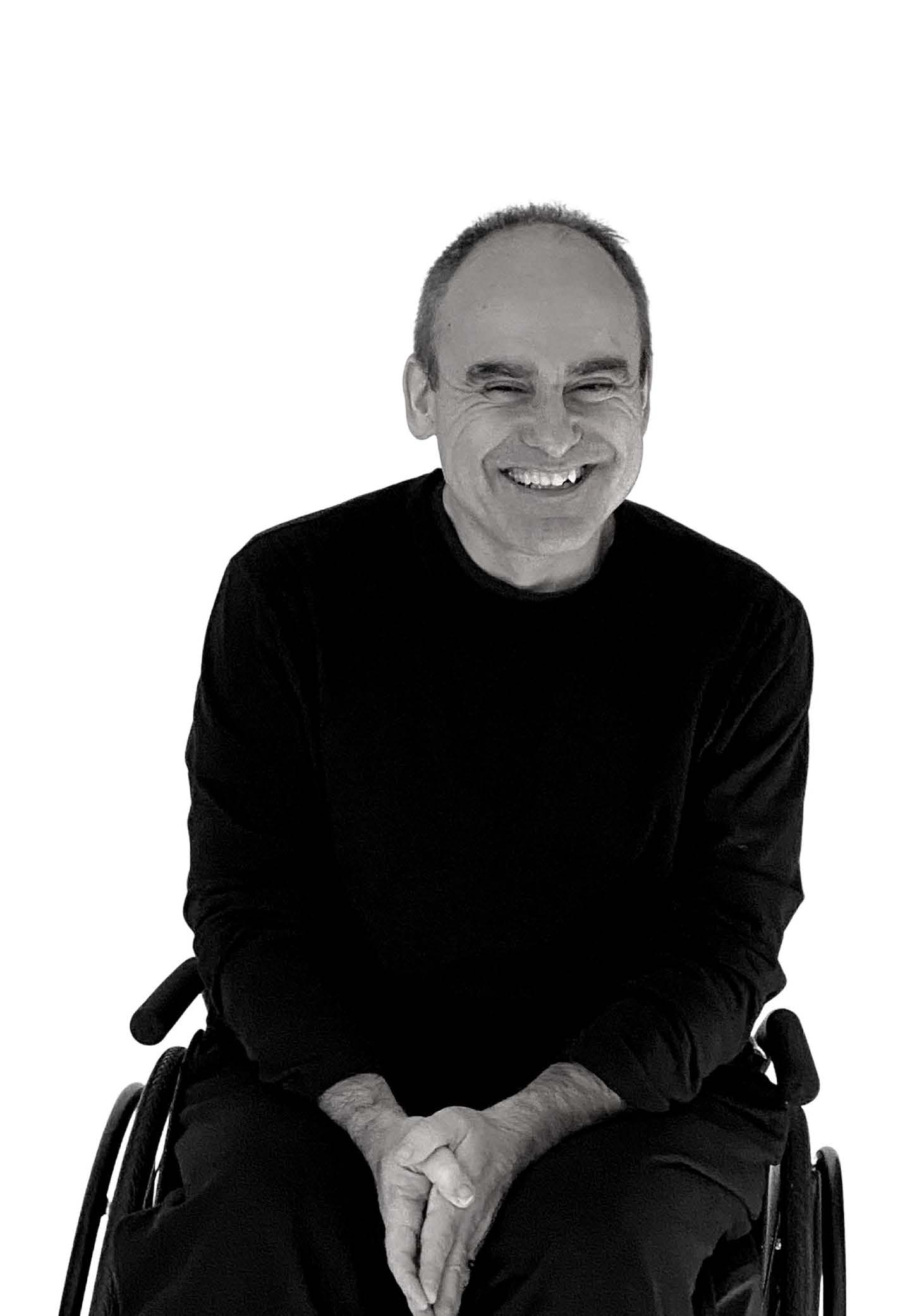
ADAPT TO WIN
Eventually, Enron declared bankruptcy, Arthur Andersen Canada merged with Deloitte, and, within days, everything transformed. What was to be the lowest point in Ruffolo’s career turned out to be the highest. “Here’s when I realized what resilience really was. The deal was consummated on a Friday afternoon in June 2002. We were told to leave our office and were not allowed back until 8 am Monday. In what can only be described as The Twilight Zone moment, I returned to work at the same office, but when I got out of the elevator, I found the Arthur Andersen signs had been replaced with Deloitte signs. My old business cards and stationery vanished and were replaced. I pushed the power on my computer, and the desktop changed. A client calls ten minutes later as if nothing happened. I adapted in ten minutes.”
Ten or twenty percent of the partners, the younger ones, readapted very quickly and got leadership positions, including me. I was now leading Deloitte’s technology, media and telecommunications practice. But the vast majority of them never recovered. They were married to the past and not to the future. It surprised me that these extremely intelligent folks who were extremely talented didn’t have the adaptability when a black swan event comes in to annihilate them.
Eight years later, Ruffolo’s inner career-change clock began ticking. At 44, sitting on the board, model CEO candidate, at the top of his career, he did what few in his prestigious position would ever think, let alone do—he quit. The news short-circuited everyone.
LEARN WHEN TO LET GO
The collapse of Enron had opened Ruffolo up to the discovery of career transience. The benefits of having multiple careers spanning no longer than eight to ten years. “I liked the idea of building up and doing something different. It makes life so much more interesting and exciting. Looking back, I think it was Enron that activated that gene in my body that would not have otherwise been activated. With disaster comes opportunity.” Though he is loyal to Deloitte even today, Ruffolo had the hindsight to know when to let go.
Ruffolo explained that CEOs and retiring athletes tend to succumb to retirement syndrome—the difficulties high-performance individuals face, specifically as they attempt to let go at the end of a full career.
“How many athletes have left early? It’s rare.” Ruffolo said. “This is a little bit about what’s happened to my career four times. I had left at the absolute peak—leaving everyone with this image of me when I was skyrocketing. What they didn’t see is that all careers eventually go down. I also knew my heart needed to help the ecosystem, and I could help them better by handing out the capital instead of being an advisor to other capital providers. But I was terrified to go to OMERS,” Ruffolo admits.
“I didn’t know the organization, except for the CEO. They were not supportive of building a venture arm.” Despite the resistance, Ruffolo went on to execute and advise on over $500 million of capital in more than forty disruptive technology companies across North America, including growth investments in Shopify, Wattpad, Wave, Hootsuite. On December 31, 2018, John resigned from OMERS to launch his own fund. On January 7, 2019, Maverix Private Equity was born.
With capital commitments from investors in process and the future of Canada’s tech ecosystem growing even stronger, 2020 was shaping up to be an over-the-top year. But March 2020 had other plans for Canada’s future. “Once the pandemic struck, not a single conversation about the fund took place. All discussions were postponed until Victoria Day. Even then, investors said they wouldn’t do anything until October 2020.”
Then, on an unsuspecting clear September morning, while cycling as per usual, Ruffolo was hit with another calamity, this time, physically. A jackknifing transport truck blows over the visionary entrepreneur, hurling him off his bike and knocking him out cold—internal organs bleeding, vertebrae, pelvis, and ribs shattered, a kidney and a lung lost. While ETAs at the scene prepared for the worst, John awakened from the blow, cursing in excruciating pain whilst attempting to peel himself off the asphalt.
“I was supposed to have died by suffocation. It’s called a right flail chest—a life-threatening condition that happens when the rib cage breaks and becomes detached from the chest wall. The four doctors still don’t understand how I didn’t die on impact based on suffocation alone.”
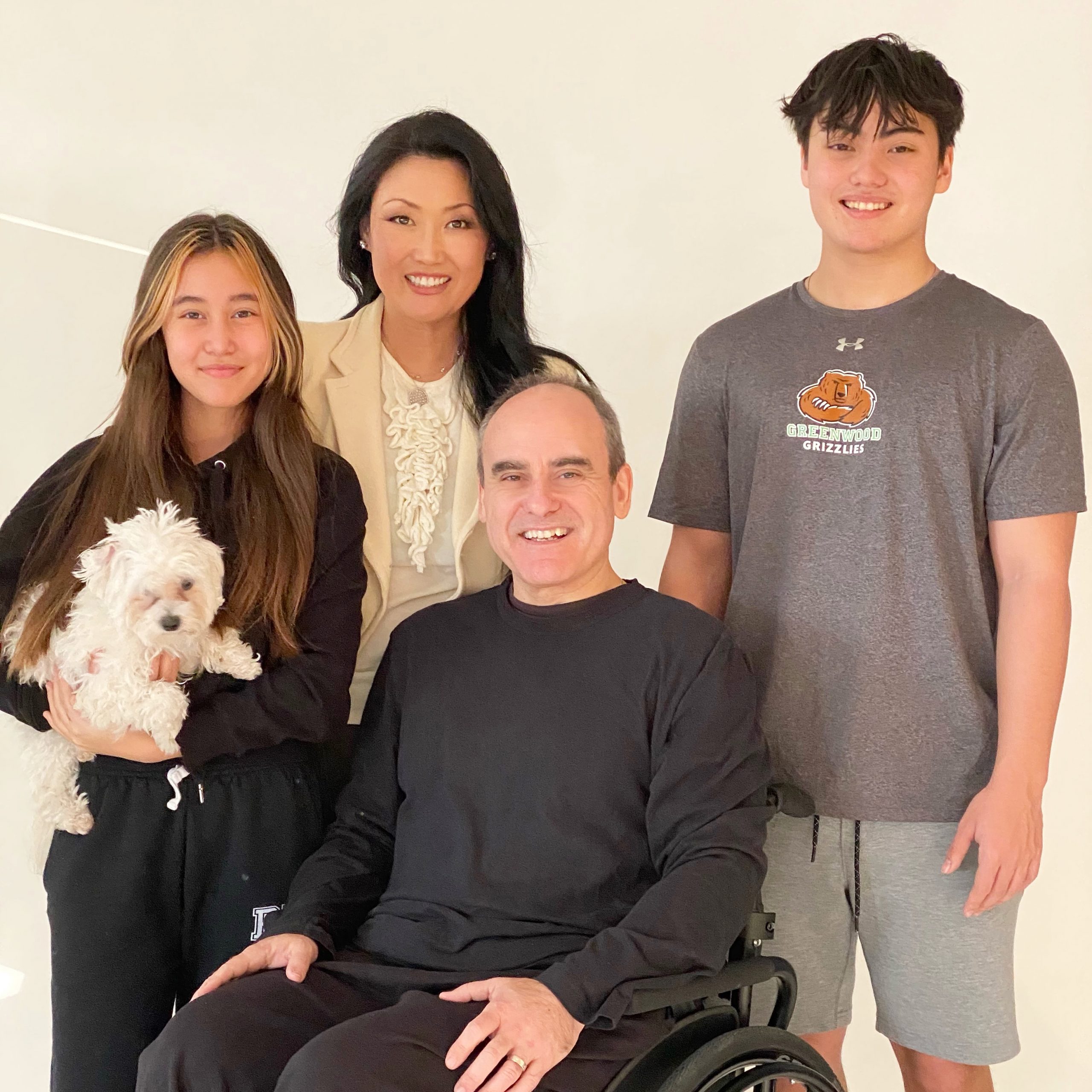
MAKE AND NURTURE STRONG
relationships
“Here I am, with all these papers in front of and around me and documents on the table—you know the one that rolls over you—I couldn’t even sit up yet. But I could tilt my head up just enough to get on the phone and call the major investors—this would’ve been about six weeks after the accident.” Ruffolo explained his intention was to reassure investors he’d be out in a few months and wanted to make sure everyone was still on board. “The truth is I called them in fear. But they all said, and this is why I love Canada, they all said, ‘John, we’re here, and we’re not going anywhere. We’re going to wait for you until you get out of the hospital and make sure you’re okay. We will be there to back you.”
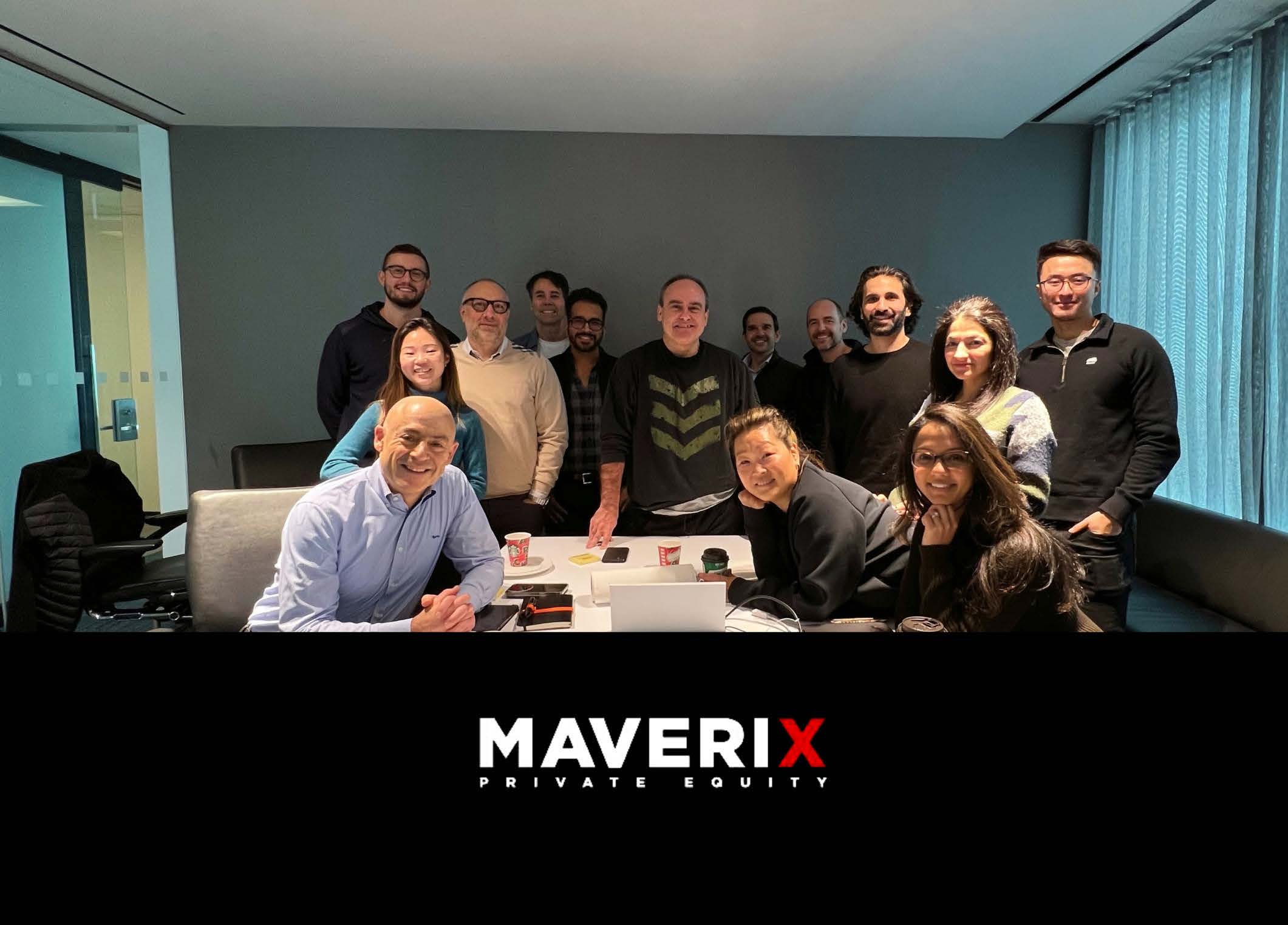
“Here I am, with all these papers in front of and around me and documents on the table—you know the one that rolls over you—I couldn’t even sit up yet. But I could tilt my head up just enough to get on the phone and call the major investors—this would’ve been about six weeks after the accident.” Ruffolo explained his intention was to reassure investors he’d be out in a few months and wanted to make sure everyone was still on board. “The truth is I called them in fear. But they all said, and this is why I love Canada, they all said, ‘John, we’re here, and we’re not going anywhere. We’re going to wait for you until you get out of the hospital and make sure you’re okay. We will be there to back you.”
Studies have shown time and time again that strong social relationships are key to resilience and is tied to greater psychological and physical well-being, Ruffolo’s story is no different. “I was blown away that every single investor that committed to investing did. And they all waited for me, and in some cases, one, in particular, was so upset about what happened that he doubled his investment in the fund, which was rather amazing. It wasn’t beneath me to get the pity.”
“The interesting thing out of all of this, if I didn’t get hit, I would’ve closed the fund around January 2021, give or take and through it all, I closed it on April 13, 2021, so basically, one hundred days is all that it cost me.”
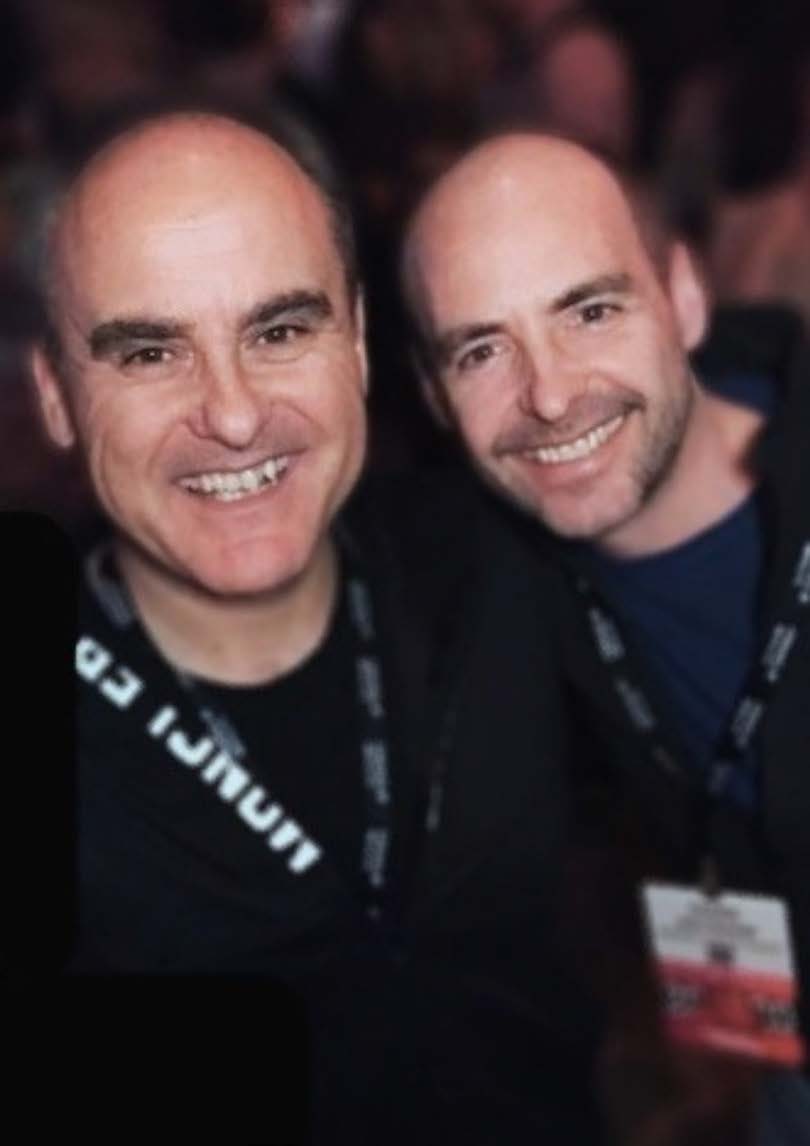
advice FOR
ENTREPRENEURS
WHO WANT TO
THROW IN THE
TOWEL
Ruffolo admits that it’s in moments of crisis that entrepreneurs reach out to him the most. “There are two things that I really poke at hard when this happens: The problem they are trying to solve and why they picked that problem. If the problem is not associated with some passion, their odds of wanting and needing to quit go up immeasurably higher. So when someone selects a problem because it makes them a lot of money and an exit, I don’t encourage them to keep going because I think that’s the problem—they picked a problem based on a monetary goal and not to change the world somehow.”
However, Ruffolo had a different take for those who picked a problem that is their passion to solve. “They will still hit a billion roadblocks. So getting around those problems and really giving them hope to get around those issues because of the passion they have inside is really what I like to convey. It takes a community to build a company. When you are fundraising, you just need one. You need to keep going. How many calls did you make, fifteen? Add another zero to it. You just need one.”
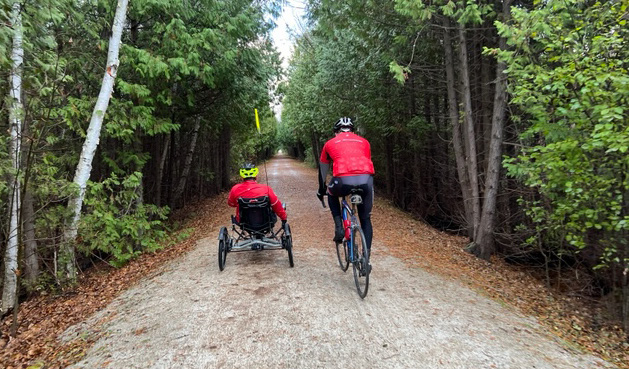
“Here I am, with all these papers in front of and around me and documents on the table—you know the one that rolls over you—I couldn’t even sit up yet. But I could tilt my head up just enough to get on the phone and call the major investors—this would’ve been about six weeks after the accident.” Ruffolo explained his intention was to reassure investors he’d be out in a few months and wanted to make sure everyone was still on board. “The truth is I called them in fear. But they all said, and this is why I love Canada, they all said, ‘John, we’re here, and we’re not going anywhere. We’re going to wait for you until you get out of the hospital and make sure you’re okay. We will be there to back you.”
FIND HOPE
THEN GIVE
hope
A year after the accident, Ruffolo returned to Sunnybrook hospital. He had promised the nurse that he would be walking the next time he returned—and with his walker, he did. There, they asked John to visit three patients.
“It was three young guys. The first guy they told me to see was a thirty-one-year-old motorcycle accident quadriplegic right now. They said he was really quiet and unresponsive and that he likely wouldn’t talk to me. But you know what, the guy wouldn’t stop talking. This was an amazing individual.”
Sitting by his side, John began telling the young man his story and his mission of defying belief and returning to the hospital when he could walk again. On the verge of tears, the man looked at John in shock.
“The guy broke down crying. I said, ‘Oh no, what did I do?’ and he said, ‘You just gave me hope.’ “You don’t have to be unrealistic. But the reality is, we don’t know whether that entrepreneur can really pull it off. If you believe that they can, even though it’s going to be really, really hard—give them hope. They don’t need a shot of realism because realism drags them down. Forget the dream killers. It’s about hope. Because a lot of it is about luck. But I believe you make your own hope, and that passion really drives you to do it. That is the single biggest thing that I love to convey when that entrepreneur is really, really stuck.”
THERE ARE ONLY TWO DOORS YOU CAN WALK THROUGH…
Ninety percent of the people choose to walk through the wrong door, and they go into a massive depression, even suicide. You have to choose the right door. Everyone is invincible if they choose to be. You have to have that realization that tomorrow is simply going to get better. I use a walker now. Even though doctors told me I’d never walk again— That’s the cockroach.
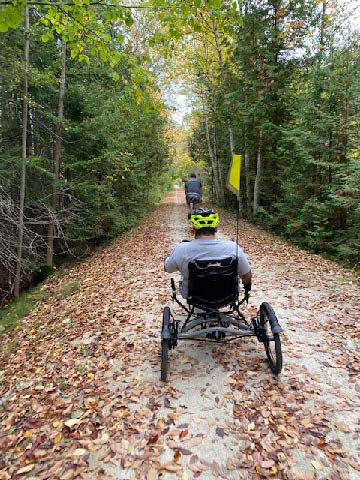
John Ruffolo
F O U N D E R & M A N A G I N G P A R T N E R
John is the Founder and Managing Partner of Maverix Private Equity. John’s focus is on guiding the strategy of the firm, Chair of the Investment Committee and is deeply involved with sourcing and leading opportunities particularly within the technology industry.
John Ruffolo was also the Founder of OMERS Ventures and the Co-founder and Vice Chair of the Council of Canadian Innovators. Over the course of John’s leadership as Chief Executive Officer, OMERS Ventures had invested over $500 million of capital in over 40 disruptive technology companies across North America, including growth investments in Shopify, Wattpad, Wave, Hootsuite, Rover, Desire 2 Learn, Hopper, DuckDuckGo, TouchBistro and League. During his tenure at OMERS, John also formed OMERS Platform Investments as its Executive Managing Director. He led investments in Purpose Financial, PointNorth Capital, District Ventures, OneEleven and ArcTern Ventures. Co-founded with Jim Balsillie, the Council of Canadian Innovators is a non-profit organization dedicated to helping high- growth Canadian technology firms scale up globally. The Council is made up of CEOs from Canada’s most promising technology companies. The Council’s position is to promote, share, and collaborate with public policy leaders on key policy levers to optimize the growth of Canada’s innovation-based sector.
John also currently sits on the boards of a number of leading innovative organizations including AI Partnerships Corp., engineering. com, Ether Capital, OneEleven, ArcTern Ventures, and Canopy Rivers. John has also previously served on the boards of Hootsuite, Wave, Desire 2 Learn, Purpose Financial, MMM Group, Continuum Residential REIT, Ontario Centres of Excellence (OCE), Sustainable Development Technology Canada (SDTC), Communitech and Deloitte.
In addition, John sits on the board of a number of not-for-profit organizations including the David Suzuki Foundation as Vice-Chair, the CIBC Foundation, the Royal Ontario Museum, Caldwell’s Top 40 Under 40 and The Dean’s Advisory Council for the Schulich School of Business.
John was a Partner at Deloitte, as well as the Global Thought Leader, the Global Tax Leader and the Canadian Industry Leader for Deloitte’s Technology, Media and Telecommunications (TMT) practice. He was also a member of the firm’s Tax and TMT Global Leadership teams and a member of Deloitte’s Board of Directors. Prior to Deloitte, John was a partner with Arthur Andersen LLP.
In 2020, John became a Fellow of the Chartered Professional Accountants of Ontario (FCPA). In 2018, John was honoured with the Order of Merit of the Italian Republic which made him a 5th Class Knight. It is the highest-ranking honour of the Italian Republic and is awarded for “merit acquired by the nation” in the fields of literature, the arts, economy, public service, and social, philanthropic and humanitarian activities and for long and conspicuous service in civilian and military careers.
John was recognized as Canada’s #1 of 100 Most Powerful Business People as selected by Canadian Business Magazine in 2014 (#3 in 2015). John was also selected as one of Toronto’s 50 Most Influential People by Toronto Life (#16 in 2015, #40 in 2016, #26 in 2017). John was awarded with the Outstanding Progress & Achievement Award by the Schulich School of Business at York University in 2014. This is awarded to a graduate who has demonstrated outstanding career potential and achieved success and recognition in their field.
